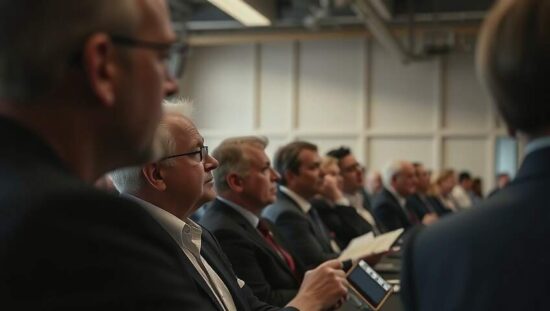German Chancellor Friedrich Merz of the Christian Democratic Union (CDU) has signaled a forceful push for enhanced European competitiveness at the EU leaders’ summit in Brussels, raising concerns about industrial jobs and criticizing recent parliamentary decisions. Arriving at the summit, Merz emphasized that the issue of European competitiveness would be a central focus of discussions with European Commission President Ursula von der Leyen and European Parliament President Roberta Metsola.
The Chancellor expressed satisfaction that over 20 member states have now endorsed his letter to the Commission and Council Presidency, calling for intensified efforts to address the challenges facing European industry. “We must now work far more rapidly in the coming weeks than we have in the past concerning decisions that reduce bureaucracy in Europe and expand competitiveness” he stated, highlighting a sense of urgency surrounding the matter.
A particular point of contention is the European Parliament’s recent rejection of the “Omnibus I” bill, which aimed to streamline EU legislation. Merz condemned the decision as a “fatal mistake” that urgently needs correction, signifying a direct challenge to the Parliament’s authority and signalling potential clashes over legislative processes. He cautioned about the potential for significant job losses across Europe, particularly within Germany’s industrial sector, underscoring the economic stakes involved.
The summit agenda extends beyond competitiveness. Discussions are slated to address continued support for Ukraine, with Ukrainian President Volodymyr Zelenskyy attending personally and to bolster the European Union’s defense capabilities. The situation in the Middle East, encompassing efforts to achieve a lasting two-state solution and reconstruction in the Gaza Strip, are also priorities. Housing and migration policies remain on the agenda, creating a complex backdrop for potential policy disagreements and compromises within the bloc.
The Chancellor’s strong stance on competitiveness, coupled with his criticism of the Parliament’s decision, suggests a potential shift in CDU policy aimed at more aggressively advocating for German industry and challenging established EU legislative practices, adding a layer of political tension to the ongoing summit proceedings.





